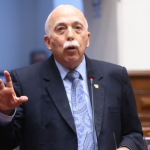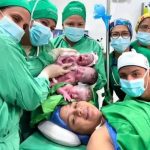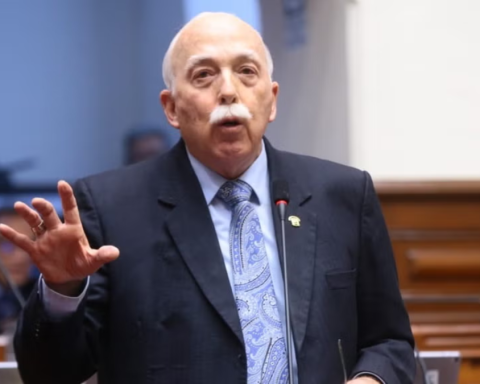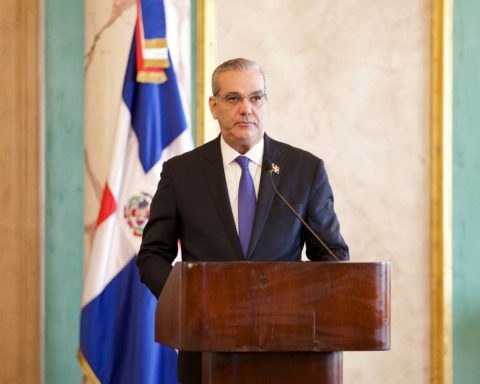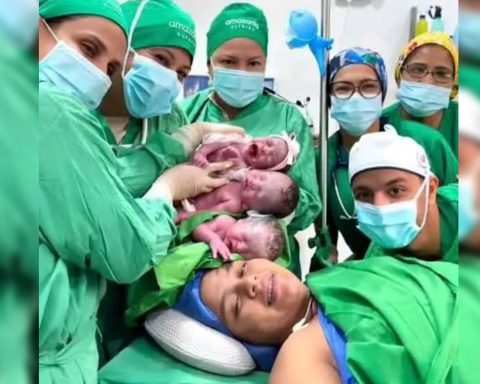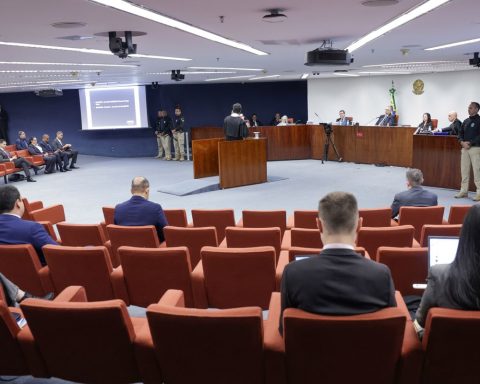Last year, 59,358 pregnancy terminations were performed in the public health system in all provinces and the misoprostol is available in the countryindicated a official report that analyzes how the abortion law is implemented in Argentina.
The report ImplementAR 2021accessed by Télam, summarizes the actions of the National Directorate of Sexual and Reproductive Health (DNSSR) of the Ministry of Health for the implementation of Law 27,610 on the voluntary (IVE) and legal (ILE) interruption of pregnancy in the country, the achievements and challenges.
The rule was sanctioned on December 30, 2020and the official document takes stock of its application until the last day of 2021.
“There are 59,348 interruptions of pregnancies carried out in safe conditions in the public system as of December 31, 2021,” he confirmed to Télam, Valeria Isla, head of the DNSSR.
Other data provided by the report is that they are 1,347 hospitals and health centers throughout the country that guarantee the practice.
Law information and contact for inquiries
The law 27,610 establishes that women and other people with the capacity to gestate have right to choose the termination of her pregnancy: up to and including the 14th week of gestation, without giving reasons (Voluntary interruption of pregnancy-IVE). And request legal interruption (ILE) if the pregnancy is the result of rape or endangers your life or health.
Line 0800-222-3444national, free and confidential on sexual and reproductive health
Email: [email protected] was enabled for the attention in written form of the deaf and hard of hearing peopleamong other actions where we worked with those who live with disabilities.
The study adds that 74,057 treatments of misoprostolthe medicine recommended by the World Health Organization (WHO) to perform abortions.
“It is available throughout the country as a safe treatment for access to medical abortion”explained the director of Sexual and Reproductive Health.
The report details that they were edited three national protocols on how to proceed in the care of the IVE/ILEin cases of rape and in post-abortion care.
In addition, it specifies that a line of training was developed in prevention and assistance in the event of sexual abuse and forced pregnancies in girls and adolescents under 15 years of age. “These are great steps and advances in the implementation of the law,” said Isla.
The study adds that 74,057 treatments of misoprostol were distributed, the medicine recommended by the WHO to perform abortions
The management also negotiated a donation of 25,000 treatments with Fos Feminista (former International Planned Parenthood Federation) and began the process of acquiring 50,000 Combipack treatments -including Mifepristone and Misoprostol, indicated by the WHO as the ideal and adequate scheme to interrupt a pregnancy- through the United Nations Population Fund (UNFPA) for entry into the country in the second half of 2022.
“The purchase of misoprostol increased five times,” revealed the official.
Regarding the calls to 0800-222-3444, a free and confidential national telephone line for sexual and reproductive health, the official document reveals that it received 21,800 consultations on termination of pregnancy.
This figure is higher than the total number of queries on the subject in the previous ten years, since between 2010 and 2020 the line answered 17,302 calls related to the right to legal interruption.
The report highlights that there is no substantive ruling that supports challenges against Law 27,610 and specifies that so far the Justice has rejected 26 of the 37 lawsuits filed throughout the country. Of the rest of the cases, seven await a judicial pronouncement and 4 were archived.
Situation in Salta
The legal team of the DNSSR, together with the Ministry of Women, Gender and Diversity, civil society organizations and lawyers from Salta “has worked on the technical defense” of Miranda Ruiz, a family medicine resident at the Juan Domingo Perón Hospital in the city of Tartagal.
The doctor “is preliminarily accused of the crime of abortion without consent, despite the fact that the medical record contains both the informed consent signed by the patient, and the certification of the cause by the effector’s interdisciplinary team; for this reason, it was requested collectively their dismissal,” the document explains.
“Projects and Strategies”
At the end of last year, the project “More Services” with a team of expert personnel with the aim of identifying management, human resource and communication strategies to increase the response capacity of the health system to the practice of abortion.
Comprehensive sex education is one of the main lines of work, and an audiovisual series is used as a pedagogical tool for training in detecting and dealing with sexual abuse and forced pregnancy in childhood and adolescence.
In this sense, it was activated “Network Approach Project” for the care of children and adolescents victims of sexual abuse and forced pregnancy, which was developed in Jujuy, Misiones and Entre Ríos with the support of the United Nations Development Program (UNDP).
Another project was with Catholics for the Right to Decide in Formosa and Santiago del Estero to consolidate the formation of training and attention teams in sexual and non-reproductive rights.
Ways to communicate the law
Regarding communication of the legal abortion law, the protocols of IVE ILE and sexual violations, were by and for indigenous women in the Wichí, Guaraní, Toba and Chorote languages, with the support of the Pan American Health Organization.
there was also communication adaptations for people with disabilities.
When asked about the challenges, Isla pointed out that “we must continue to expand health teams throughout the country and incorporate the interruption of pregnancy into the primary health care strategy.”
In addition, he considered it necessary “to reduce the inequality gaps that exist between provinces. There are some that have advanced a lot in service coverage and quality, and others that are very slow with great effort from professional health teams. More support from authorities is required provincial health services.
“We have to make the law more known, this new right among the population so that they can demand it and access it”Valeria Island
The director also said that “we must make the law more known, this new right among the population so that they can demand it and access it.”
“Continue expanding the coverage of modern and effective contraceptive methods, with good counseling, preventive and free access to emergency hormonal contraception, and the full, effective implementation of comprehensive sexual education (ESI)”, are other axes to deepen, according to the official.
“It has been shown that adolescents who go through ESI with a rights perspective have better access to methods, prevent unintended pregnancies and can complete their educational path regularly,” she added.
#ItsLaw #Law27610 #IveIlePostabortionProtocol #SexualRights https://t.co/AMsw9VTBuU
— ValeriaIsla (@ValeriaIsla) March 13, 2022







